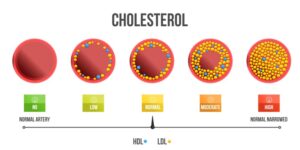Can Your Lungs Heal From Vaping?

Ever since vaping made its way into mainstream culture, there has been a running dialogue regarding its implications on health and safety. According to a review by Public Health England in 2015, vaping is perceived as less harmful than traditional tobacco cigarettes, and evidence shows it to be 95% less detrimental by comparison.
This assertion has been subjected to regular scrutiny since 2015, but has maintained its credibility in the most comprehensive reviews on vaping. The latest affirmation of this fact was in a report published on 29th September 2022, and researchers are continuing to gather evidence that backs up the claim.
However, notwithstanding such convincing evidence, which has even prompted the UK government to start vaping schemes to help people quit smoking, we still remain largely uninformed about the actual long-term effects of vaping.
The lack of definitive knowledge is primarily attributed to conflicting data. A majority of the participants in vaping trials are ex-smokers, which muddies the waters and makes it difficult to distinguish between health complications arising from previous smoking habits or new vaping habits. This inconsistency has been highlighted in the aforementioned report and numerous others.
EDGE Vaping delves into the impact of vaping on lung health, whether recovery is possible, and the importance of consulting your GP.
Does Vaping Damage My Lungs?
The verdict on this is still pending. As we have said, there is mounting evidence suggesting that vaping could be a safer substitute to tobacco. Vaping has been acknowledged by various UK authorities, including the NHS, as a viable tool in smoking cessation. Nonetheless, it’s crucial to recognise that inhaling any substance other than air will likely induce some negative effects.
Vaping, like air pollution and cigarette smoking, exposes our lungs to chemicals not naturally found within them. Although evidence indicates that vaping poses less risk than cigarette smoke, which is filled with numerous confirmed carcinogens, it doesn’t mean that vaping is entirely harmless. This is why individuals who have never smoked or vaped are strongly discouraged from picking up the habit.
Various health concerns linked to vaping have surfaced, from popcorn lung to lung disease. However, many have been associated with specific circumstances and are not typical of mainstream vaping products. For example, many reported issues have stemmed from individuals creating their own e-liquids or purchasing from less-regulated markets than the UK, such as the USA.
In the UK, adherence to the Tobacco and Related Products Regulation (TRPR), our counterpart to the EU-wide Tobacco Products Directive (TPD), is mandatory. This prohibits the inclusion of certain harmful ingredients frequently found in flavourings. Additionally, all vape liquids intended for sale must be approved by the Medicines and Healthcare Products Regulatory Agency (MHRA).
Although these regulations provide better assurance for UK vapers that the products they purchase won’t be harmful, we must concede to the potential negative effects of inhaling any substance other than air.
Our comprehension of how vaping influences the lungs is not yet fully formed. Some suggest it could impede recovery from infections and potentially exacerbate conditions in those already predisposed. As such, it is important to carefully consider the risks before taking up vaping.
Can I Recover From Lung Damage Caused by Vaping?
This question is tough to answer definitively owing to our limited knowledge of the long-term lung damage induced by vaping. Both professional and anecdotal evidence often contradicts itself and is polarised, making it hard for ordinary individuals to find answers.
Jatish Shah, Director of Shah Deaddiction & Rehabilitation Service Centre, stated, “Your lungs can definitely heal after quitting vaping. Of course, you have to give it time. As a general rule you will find that in two or three days your sense of smell and taste returns. In five to seven days, your bronchial tubes open up and you will find it easier to breathe and, consequently, you will feel fresher. And from between three months and nine months, your lung capacity will increase by 10+%. Thereafter, there is nothing but benefits […] in terms of improving health.”
However, he stresses that severe conditions like emphysema or lung cancer are often irreversible. While no definitive evidence suggests that vaping can be a cause for these severe health problems, this may be due again to the blurred distinction between data from former smokers and vapers, and does not necessarily mean that there is no risk.
Stephen Broderick, a US-based lung surgeon and assistant professor of surgery at John Hopkins University School of Medicine, had this to say: “In the last 24 to 36 months, I’ve seen an explosive uptick of patients who vape. With tobacco, we have six decades of rigorous studies to show which of the 7,000 chemicals inhaled during smoking impact the lungs. But with vaping, we simply don’t know the short or long-term effects yet and which e-cigarette components are to blame.”
However, Mr Broderick’s observations may not be wholly applicable to UK vapers. Many of the chemicals that have been identified as harmful in vaping, such as diacetyl, formaldehyde and acrolein, are banned in vape liquids in the UK.
Cancer Research UK, having access to data informed by stricter safety regulations for UK vaping products, offered this perspective on the impacts of vaping on health: “Lots of people want to know about the health effects of e-cigarettes. They’re still a relatively new product, so it’s too soon to know for sure. Many studies show that vaping is far less harmful than smoking. This is because e-cigarettes don’t contain cancer-causing tobacco, and most of the toxic chemicals found in cigarettes are not in e-cigarettes.
“Some potentially harmful chemicals have been found in e-cigarettes. But levels are usually low and generally far lower than in tobacco cigarettes. There is no good evidence that vaping causes cancer.
“But e-cigarettes are not risk-free. They can cause side effects such as throat and mouth irritation, headaches, coughing and feeling sick. These side effects tend to reduce over time with continued use. We don’t know yet what effects they might have in the long term.
E-cigarettes should only be used to help you stop smoking, or to stop you going back to tobacco. Most e-cigarettes contain nicotine, which is addictive. If you have never smoked, you shouldn’t use e-cigarettes.”
Speak to Your GP
If you have been vaping and have noticed new symptoms such as coughing, wheezing or chest pain, it’s vital to seek advice from your healthcare provider, as they are best equipped to guide you regarding your health.
The same advice applies if you’re considering quitting smoking and believe vaping might help; if you have any health concerns, it’s crucial to discuss them with your GP first. You can also contact the NHS Stop Smoking Service for more information about structuring your quitting journey.









